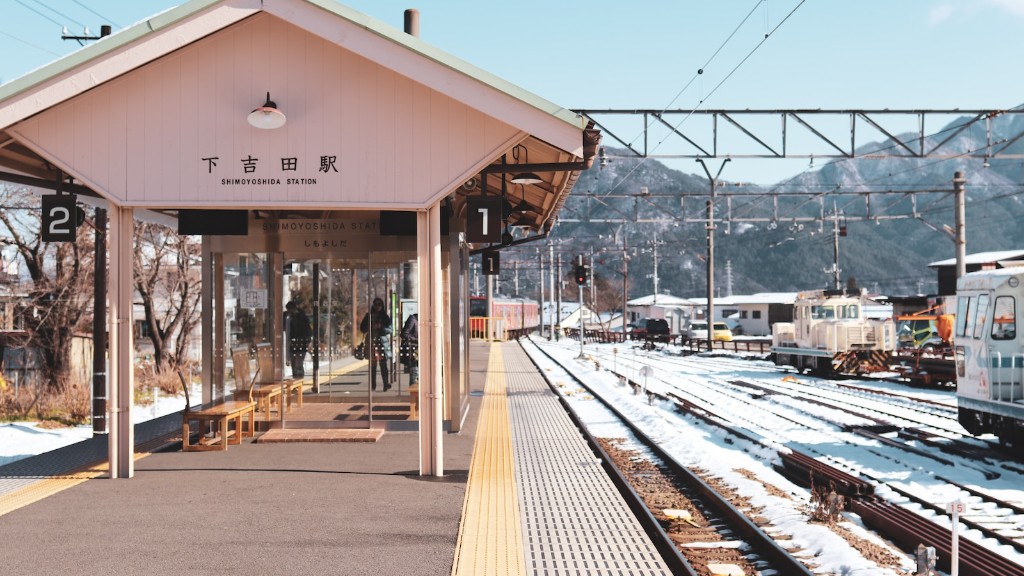Description
The Japan Work Travel Visa is a long-term visa program offered by the government of Japan. This program enables applicants from eligible countries to live and work in Japan for up to a year. It is a great way to experience living and working in Japan while earning a salary and making new friends, as well as being able to explore the many cultural attractions Japan has to offer.
To be eligible for a Japan Work Travel Visa, applicants must be between the ages of 18-30 and have a valid passport from their country of origin. They must also be able to demonstrate sufficient funds to support themselves during their stay in Japan and secure a job offer from a Japanese employer. The visa itself is valid for one year, with the possibility of an extension for up to two more years.
Once an applicant has their Japan Work Travel Visa, they must obtain the permission of their employer before they can start their employment in Japan. The employer must provide the visa holder with their labor and/or social insurance registration papers, such as a payslip or an employment certificate, and ensure that the visa holder adheres to the laws and regulations of Japan. The duration of stays for a work permit vary depending on the employer.
Foreigners who wish to stay in Japan longer than the period allowed by their visa can apply for a renewable residence permit, also known as a Certificate of Eligibility. This permit allows the holder to extend their stay in Japan up to five years and engage in employment activities without the need to reapply for a visa. Other benefits of a Certificate of Eligibility include the ability to open a bank account and apply for a driver’s license.
One of the best things about the Japan Work Travel Visa is that applicants don’t have to have any Japanese language skills to get it. They will however, need to learn some in order to survive in Japan, so it’s a good idea for them to take a basic Japanese language course in their home country before they leave.
Job Opportunities
The Japanese work visa offers a wide range of job opportunities in Japan. Popular job choices include teaching English, hospitality, work in restaurants, bars, and convenience stores. Some foreigners also find work in factories and construction sites, although these jobs generally require some form of technical qualification.
The majority of job postings for foreigners in Japan require some understanding of Japanese culture and language. The recruitment process for foreigners is similar to that of Japanese job seekers, with work contracts, resumes, interviews and tests all a part of the process. Job seekers should also be aware of the different salary and job expectations for foreigners in Japan.
When applying for a job in Japan, visitors should remember to bring proof of their working holiday or work visa, and be aware of the current labor laws in Japan. It is important to note that visa holders are prohibited from working in certain fields or engaging in activities that may be against the laws of Japan.
The influx of foreign workers in Japan has greatly benefitted the economy, with more employers recognizing the value and contribution of a multicultural workforce. The job market in Japan provides a great opportunity for foreigners to gain work experience in a different culture.
Essential Items for Working in Japan
Before starting to work in Japan, it is essential that visa holders pack a few important items they may need during their employment. Some essential items include:
- Charges for electronic devices
- An extra pair of shoes
- A change of clothes
- A passport-sized photo
- Medical insurance policy
- Umbrella
Aside from these, there are a number of other items that may be necessary depending on the type of work a foreigner will be doing. For example, if working in the hospitality industry or teaching English, it would be wise to bring additional teaching materials or a translator. It is also strongly recommended that foreigners apply for a personal bank account before they start working in Japan, as this will make dealing with tax and other employment-related payments easier.
Jobs That Don’t Require a Visa
Japan also offers a number of jobs that do not require a visa, such as seasonal work or internships. Although many of these jobs may not be suitable for all visa holders, they are a great way for visitors to experience life in Japan without the bureaucracy of obtaining a work permit. Seasonal work and internships offer a great opportunity to learn about Japanese culture, make new friends and earn some extra cash.
Freelancers and remote workers can also find many opportunities in Japan. Freelance work that can be done remotely, such as writing, designing, coding, or any other creative or technical skill is becoming more and more popular in Japan. These types of jobs require very little paperwork or commitment, and can often be done from anywhere in the world. Foreigners looking to explore the Japanese landscape while obtaining an income can really benefit from these job opportunities.
Working in Japan with a Student Visa
Foreign students holding a student visa are also allowed to work in Japan for up to 28 hours a week during their studies. There are a number of ways to find work as a student in Japan, including through the school or university, at part-time job fairs, or through job postings online and in newspapers. Students can expect to earn a minimum wage, which is subject to change depending on the city or prefecture.
Depending on the college or university, student internships are also available. This type of work can range from unpaid to high-paying internship programs, with some providing housing and other additional benefits. Working while studying gives foreign students an opportunity to gain valuable experience, while also earning an income.
Japan Working Holiday
The Japan Working Holiday Program is a great way for young people from eligible countries to experience a year of working and living in Japan. Many of the same requirements as the usual work visa program apply, however, there is no need to secure a job offer before arriving in Japan. Working holidaymakers can stay in Japan for up to 12 months and are eligible to work in a variety of jobs, including hospitality, agriculture, manufacturing, and construction.
The job search process for a working holiday is similar to the normal visa application process, although there is more flexibility in terms of where and when you can work. Additionally, the main requirement for the working holiday program is that applicants are between the ages of 18-30 and have a valid passport from their home country.
The Japan Working Holiday Program offers a great opportunity for young people to explore this exotic culture and to gain valuable work experience in Japan. It is also a great way to make new friends and gain insight into the traditional Japanese lifestyle.
Taxes in Japan
All visitors to Japan who are engaged in paid work are subject to taxes on their earnings. This includes income taxes, health insurance, pension deductions, and unemployment insurance. The amount of taxes that need to be paid is based on the annual income of the visa holder, and the rate applicable in their current prefecture. Those with higher incomes are taxed at a higher rate.
It is important to note that Japan does not have a tax treaty with any foreign countries. This means that any income made in Japan is subject to Japanese income tax laws, and credits are not provided for taxes paid in other countries. It is therefore important for foreigners to ensure that they are aware of their obligations and comply with the Japanese tax laws.
For those who are staying in Japan for the long-term, there is also a tax refund system available. This can be used to claim back taxes for a period of residence up to five years prior to the refund application date.
Social Security and Health Insurance
Employers are responsible for ensuring that all of their foreign employees are registered with the Japanese Social Insurance System (SIS), or Health Care Insurance. This insurance is compulsory for all employees in Japan, and employers must deduct the appropriate contribution rates from the employee’s salary. This contribution rate varies depending on the individual’s income and the prefecture in which they work.
Japan’s Health Care System provides basic health coverage for all employees, with the government subsidizing 50% or more of the cost of care. The health care system covers a variety of medical services, including GP visits, hospitalization, some specialist treatments, and pharmaceuticals. For those who are covered by the Japanese health care system, a health insurance card is provided, which they can use to receive health care services.
Apart from the health care system, Japan also offers unemployment and accident compensation insurance. This insurance covers losses in salary or medical costs in the case of an injury or illness, or job loss due to a medical condition. It is important to note that these insurance policies are often subject to a waiting period and certain terms and restrictions.
Leaving Japan
When it comes time to leave Japan, it is important to remember to cancel all relevant permits or notifications, such as the Certificate of Eligibility, bank account, SIS enrollment, and any other permits or notifications that have been obtained during the duration of stay. It is also important to keep in mind that the duration of stay must be indicated on the departure card presented at the airport.
Once the visa holder has finished their stay in Japan, they may choose





